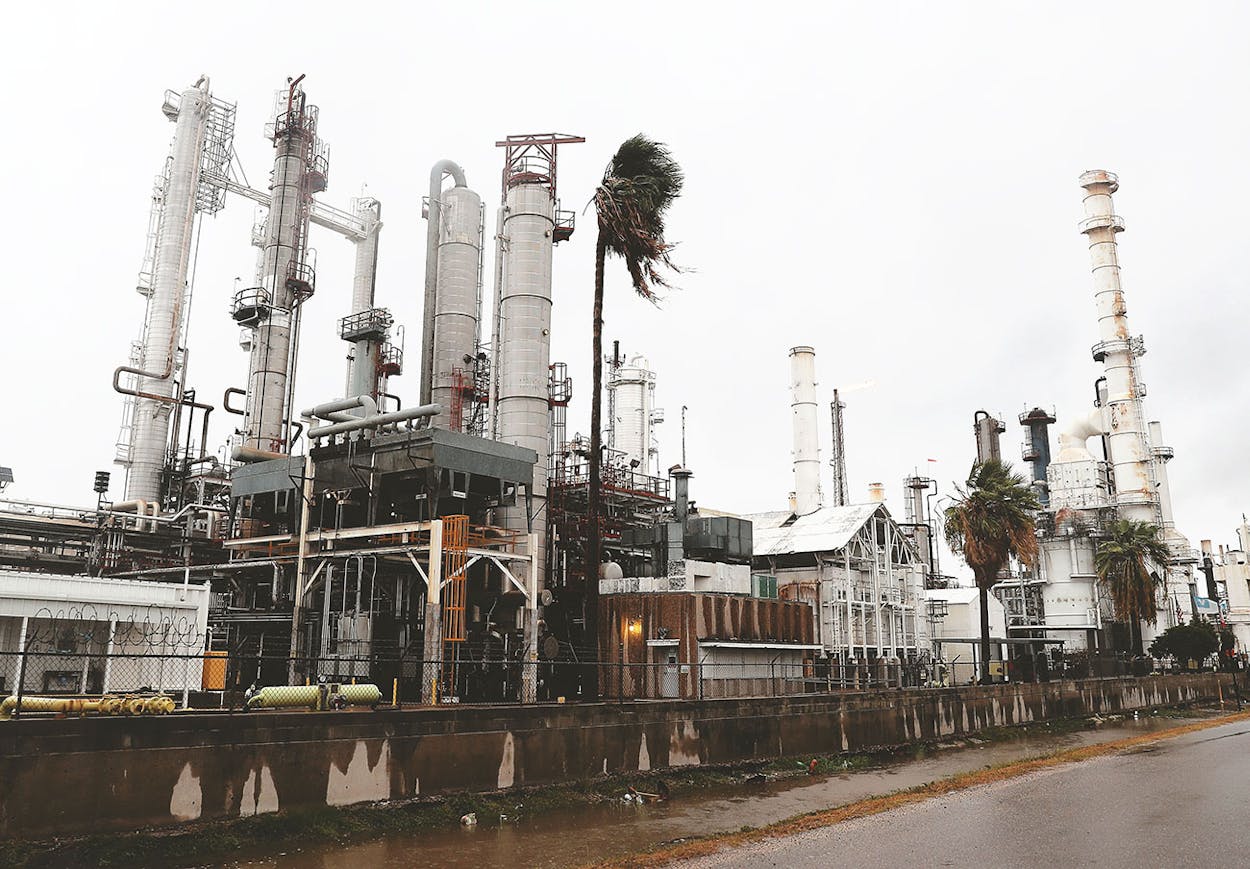As Texas Gulf Coast residents begin the long recovery from Hurricane Harvey this week, they’re likely to confront another consequence of the storm—higher gasoline prices. Even before the hurricane made landfall, some gas stations in the Houston area reported shortages as motorists tried to top off their tanks in preparation for supply interruptions.
Refiners were getting ready too, shuttering plants along the coast to minimize storm damage. So far, the storm has taken about one third of the nation’s refining capacity offline. In Corpus Christi, Valero Energy, Citgo Petroleum, and Flint Hills Resources all shut down operations. Valero reported that its two facilities received only minor damage, which should enable them to get back into service quickly.
As the situation worsened in Houston, many refiners in the area followed suit. Exxon Mobil, for example, shut down its Baytown refinery on the Houston Ship Channel—the second largest in the country—and Shell closed its Deer Park refining and chemical complex. Petrobras, Phillips 66, and Chevron Phillips have all halted operations of refineries or chemical plants as well.
As Harvey moves east, it could affect refineries in Beaumont or Lake Charles, Louisiana.
The prospect of so much refining capacity shutting down is driving up gasoline prices. Gasoline futures on the New York Mercantile Exchange surged by 7 percent Monday, to $1.78 a gallon, the highest in two years. (Nymex contracts reflect wholesale prices, not pump prices.) Consumers could see prices increase by as much as 25 cents a gallon.
Oil prices, meanwhile, are actually falling based on the prospect that the shuttered refineries will reduce demand for crude. West Texas Intermediate fell $1.60 a barrel as of midday Monday, to $46.26. And that decline comes even though operators in the Gulf of Mexico shut down rigs and production platforms as Harvey rolled in. Gulf oil production fell by about 22 percent—or some 380 million barrels a day—and natural gas production dropped by about 26 percent, or 828 million cubic feet a day, according to the federal Bureau of Safety and Environmental Enforcement.
Depending on the damage left in Harvey’s wake, it could take weeks or months to resolve the bottleneck. So far, most major pipeline operators say their lines are functioning, but as the rain lingers over the greater Houston area, that could change. A major pipeline disruption could drive gasoline prices even higher.
The good news is that while pump prices may rise for the Labor Day weekend, they typically fall after that. A seasonal pullback in demand could help mitigate any Harvey-related price increase in the months ahead.
- More About:
- Energy
- Hurricane Harvey







